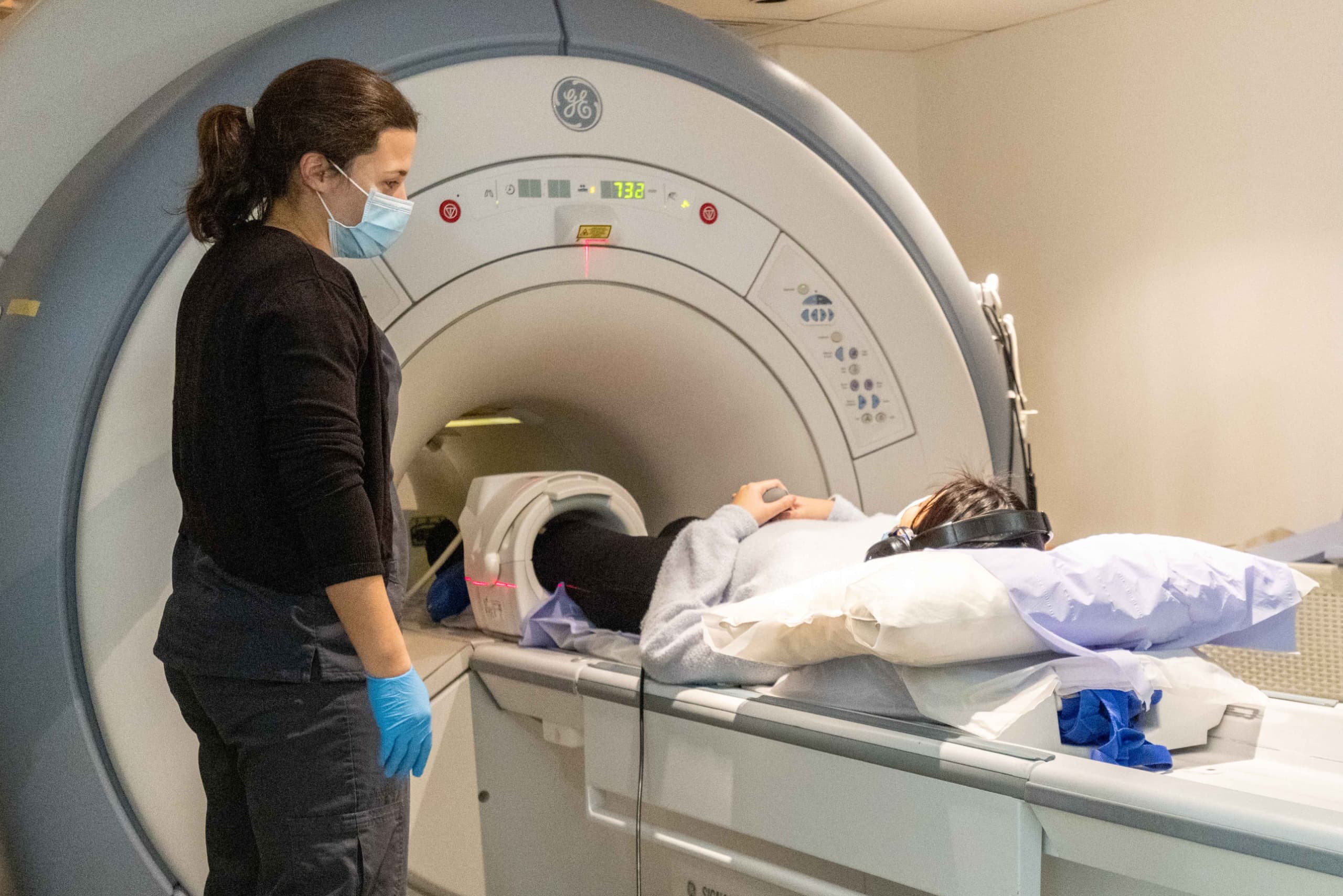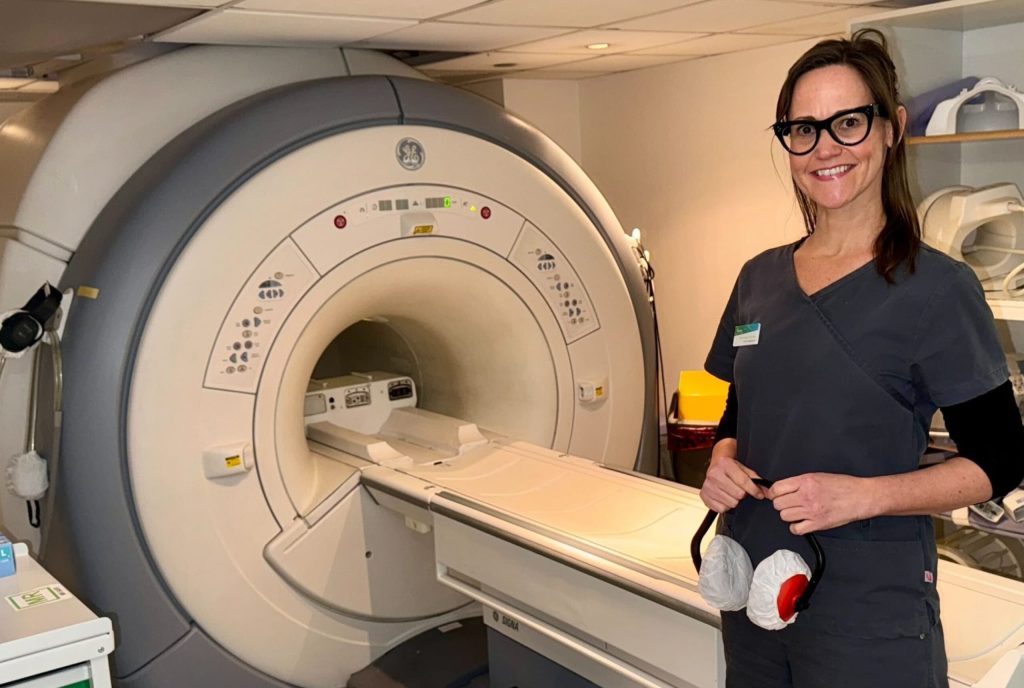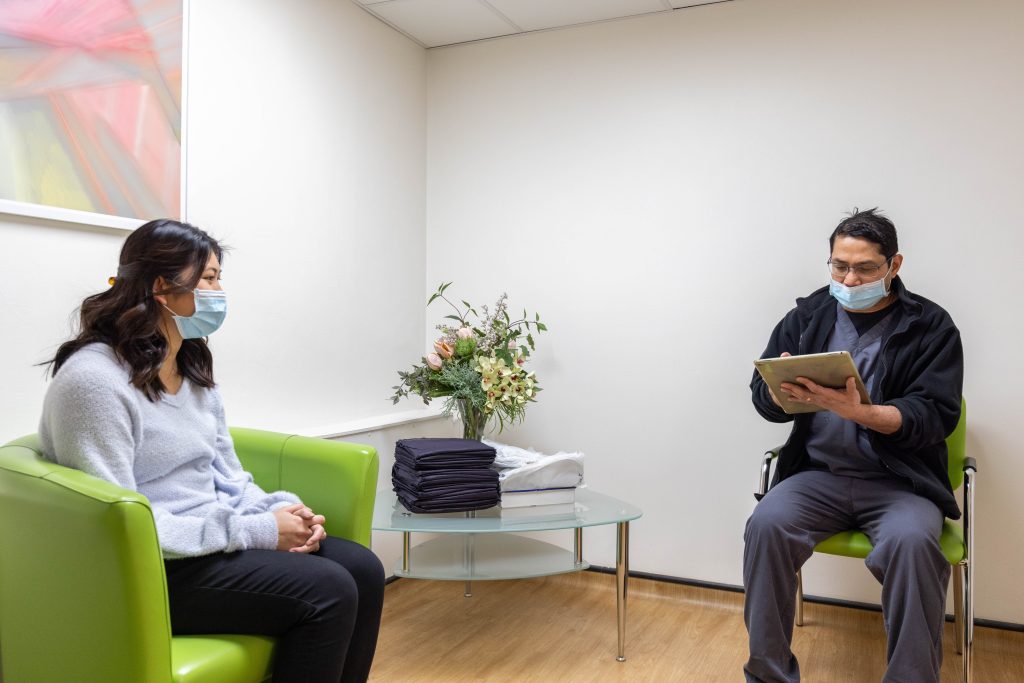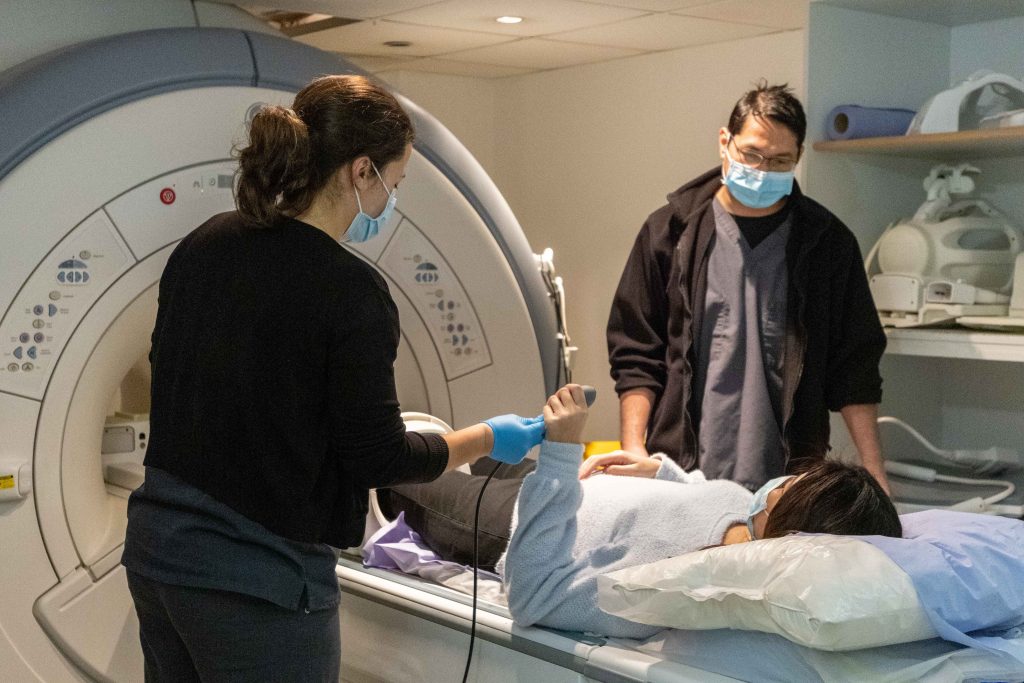Understanding MRIs
An insight on what happens when you have an MRI

Understanding MRIs
Posted on Wed Jan 17, 2024
MRI stands for Magnetic Resonance Imaging. It is a type of scan that uses magnetic fields and radio waves to produce detailed images of the body.
For an MRI scan, a very strong magnet is used, and different radio frequencies manipulate the hydrogen atoms in the body to produce images.
At Oryon Imaging, we offer affordable, high-quality private MRI scans with rapid results and same-day appointments. We spoke with our MRI Radiographer, Dominque Freeman about MRI scans, what happens during an examination here at Oryon, and how we ensure patient safety during the scan.

“An MRI is a scan where we can look inside a patient’s body, using a very strong magnet to rule out certain pathologies. It gives information on bone, muscles, tendons, joints, organs as well as soft tissue.” – Dominque Freeman, MRI Radiographer
We asked Dominique, why someone might need an MRI scan at Oryon Imaging?
A patient might need an MRI because they are experiencing pain or have had recent trauma or accident, this can be acute or chronic. It provides extremely detailed imaging of the anatomy being scanned to help provide a diagnosis.
What does your day consist of as an MRI radiographer?
I start by running a quality assurance audit on the MRI machine to ensure everything is in working order for the day.
After checking the machine is ready to scan, I ensure the equipment and room is cleaned and I prepare the MRI table for the first patient. This involves setting up the machine with the correct coil or camera, depending on what scan the patient will require.
During the day, we go through safety questions with every patient, to make sure they are safe to have their MRI scan.

In between every patient, I thoroughly clean all the equipment and cameras used, maintaining clinical infection prevention and control standards.
After a patient has their scan, I ensure all the completed imaging is diagnostic. They are then promptly sent to our team of radiologists for reporting.
Throughout the day, we receive a high volume of referrals. I will review each one to ensure each patient is booked for the correct scan.
What are the most common MRIs performed at Oryon?
At Oryon, the most common MRI scans are the lower back, knees and brain.
You can find out more about our MRI services here.
How does an MRI examination work?
We take the patient through a thorough safety check to ensure they are safe to go inside the magnet for their MRI scan. The patient will then be positioned on the table and be asked to keep still for the duration of the scan. I will plan the patient’s imaging from the control room to ensure all images are of high diagnostic quality for the radiologist to report on. The patient is kept informed on how long the scan will take, as well as how and when to obtain the results.
You can read more about what to expect on the day of your MRI appointment, here.
How do you reassure patients who might be worried?
To ensure our patients feel comfortable during their appointment at Oryon, we can offer soothing music through headphones, and an eye mask. We stay in communication throughout the scan, talking to the patient through an intercom system. The patient will have an emergency buzzer, should they wish to stop the scan.
Patients also have the option to bring a family member into the room with them, as long as they are also MRI-safe according to the same safety screening questions.

How do you help patients with might be claustrophobic?
We listen to the patient’s concerns and find ways to help their claustrophobia; music and an eye mask often helps. We can position them in a different way, for example, feet first depending on what part of their body is being examined. They can be accompanied by a friend or relative if they are deemed safe to do so.
To help patients understand what to expect during their scan, we explain the full procedure. They are also aware we are there to comfort them through the intercom system.
You can read more on how we help claustrophobic patients during an MRI scan at Oryon, here.
Is it safe to have an MRI?
MRIs are very safe as there is no radiation since it uses an extremely large magnet and radiofrequency. However, we do have to ensure that a patient is safe to scan, by checking they do not have any metal in or on the outside of their body.
Certain metalwork is deemed safe to scan but as a radiographer, I will need to have all the information to assess and confirm that the patient is safe.
Is it safe to have an MRI if you’re pregnant?
Whilst there is no proven harmful effect of having an MRI during pregnancy, there is the possibility of heating, as well as dangerous noise levels. Therefore, we do not scan during the 1st trimester. If a patient is in their 3rd trimester, we will assess on an individual basis. We would only scan if the benefits outweigh the risks. In these cases, we always proceed with caution.
How to get an MRI
If you need an MRI, we have appointments across the week, including same-day appointments and weekend availability.
Our MRI service is available 7 days a week, at 2 locations. You can see our live availability and pricing on our website.
You will need a referral from a healthcare professional to make a booking. If you need a referral, we can help you get one with our scan referral service. You can find out more information about what a referral is and why you need one here.
How much does an MRI cost?
At Oryon Imaging, we pride ourselves we affordability at no compromise to the standard of our service. We offer standard MRI scans for as little as £275, depending on the date and time you book.
Our service is recognised by all major insurers including BUPA, AXA Health and WPA.
How quickly will I get my results?
Scans images are available immediately through our secure, online community, Connect, which you will be invited to sign up to as part of booking your appointment.
All our scans are reported by our expert consultant radiologists. These reports are shared directly with your referring clinician within one working day.
Share this article
Most Recent
Posted on Thu Jul 3, 2025
How Long Does A Shoulder MRI Take?
Posted on Thu Jul 3, 2025
Posted on Tue Jul 1, 2025
Stay up to date
If you’re interested in keeping up with what we’re doing, just leave your email address here and we’ll send you periodic newsletters and other updates.





